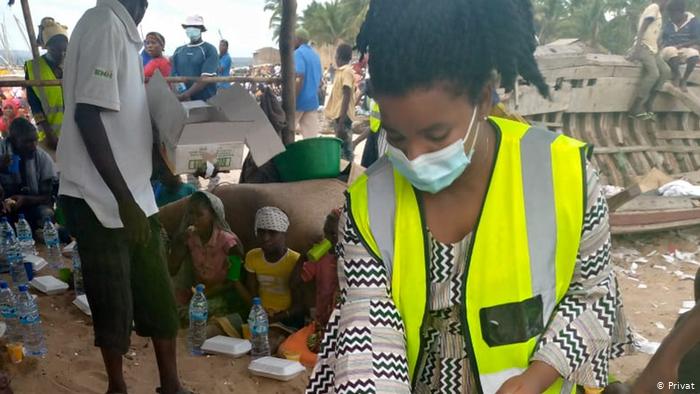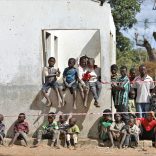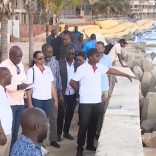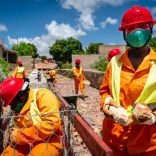Mozambique Insurgency grows at 'sensitive' time for TotalEnergies' return - AFP
Mozambique: The heart is a house – there’s always room for one more displaced

Awage Afido: "We spend the meal together"
“Having love for your neighbour” is all that Awage Afido thought about when she opened the doors of her home to 20 displaced people she had never seen before. She is just one of hundreds of kind people in Pemba – and her guests are effusive in their gratitude.
They arrived at Paquitequete beach by the thousands, today fewer arrive. They are the internally displaced persons fleeing terrorist atrocities, and land disoriented and lacking almost everything. But here, a warm hug awaits them, a plate of food, clothes and even a roof.
“Having love for others. Receiving them here is a help, tomorrow the same thing can happen to us. What we get is what we share. And we are more than 20 people in this house,” young Awage Afido says.
“They are family”
She can accommodate so many people because her parents’ house is big, she says. But the gesture says that the heart is even bigger, giving meaning to the popular saying: “Where there’s food for one, there’s food for two.”
“We spend meal-times together, like [family], we cook in a single pan,” she says.
Hospitality is one of the hallmarks of Paquitequete, the neighbourhood where Awage lives. Anyone who knows Pemba, in Cabo Delgado province, northern Mozambique, knows that its residents were practically born with open arms. They say that the doors are not locked here, earning gratitude from Zainaba, one of Awage’s guests.
The displaced woman from Matemwe is explicit. “I feel very well here, and I am grateful. I thank her for her hospitality, and I thank God for having managed to get here.”
Paquitequete, a new home
In Paquitequete, many are of the Kimwani ethnicity, as are many displaced people who arrive. Awage and Zainaba are Kimwanis. And the 27-year-old hostess says that the environment is harmonious in her home. After all, the displaced are “family”, as she says. During all the time of the conversation with DW, we never saw her interact with them as strangers.
Getting bread for more than 20 people is not easy. But solidarity is something that continues to flourish in Pemba.
“As I work on the beach as an activist, there are partners who make contributions, because there, on the beach, there are people sleeping in the open. It is [a very sad situation], we are receiving dead people, sick people.”
Awage is a Kuendeleya activist, an association still in the making and a gesture of humanism that was born of a group of young people on Whatsapp to address a humanitarian crisis: the terrorism which began in October, 2017, has already displaced approximately 435,000, forcing them into misery.
“There are people who are donating clothes, because there are children who arrive without clothes. Their mothers say that they [the terrorists] burned everything and they have nothing to wear. But there are good-hearted people who help these people,” the activist reveals.
“I would not like to depend on help”
People just like Awage herself, a true fount of generosity. Despite enjoying the stay and being grateful to her hostess, Zainaba says she wants her independence and continues to nurture her dreams.
“I would like my own roof, and for my family, and I would not like to constantly depend on support and beg for support. I would like to have my business again, as in the past.”












Leave a Reply
Be the First to Comment!
You must be logged in to post a comment.
You must be logged in to post a comment.